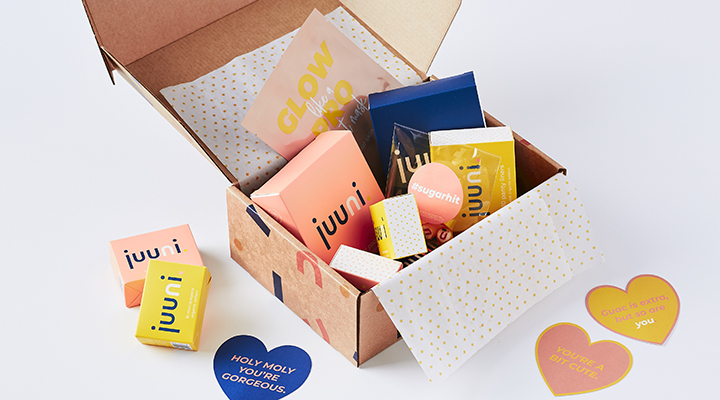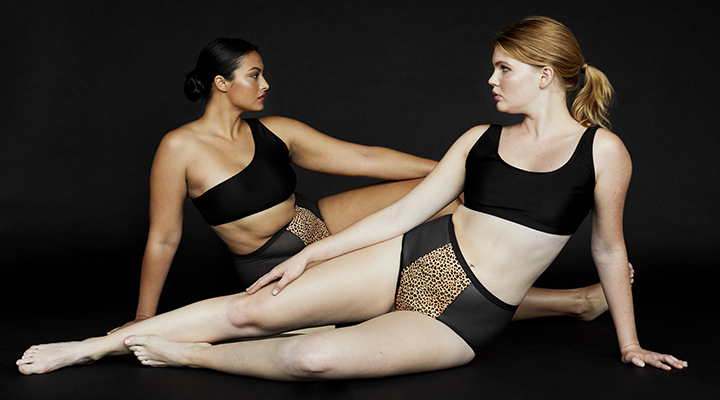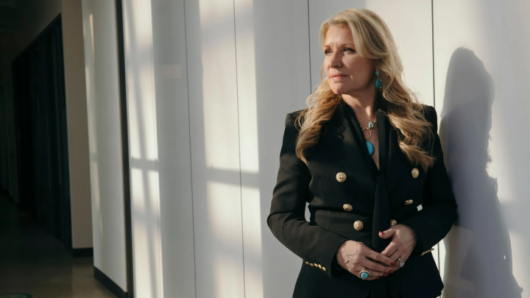“Crude”, “vulgar”, “disgusting”, “embarrassing”, “inappropriate”, “offensive”. These are just some of the words used by complainants to describe their feelings towards a Tampax advertisement which aired recently in Ireland.
The “Tampax and Tea” ad set out to educate young women about the correct way to use a tampon, but was banned by the Advertising Standard Authority of Ireland (ASAI) after receiving 84 complaints from viewers, which concluded that it had caused “widespread offence”.
“You gotta get ’em up there, girls!” a talk show host exclaims in the ad, before a graphic appears on screen demonstrating how to insert a tampon correctly.
“Not just the tip, up to the grip!” she says.
According to Tampax owner Procter & Gamble, the ad was created in response to findings that 42 per cent of women who use applicator tampons do not insert the applicator correctly and that 79 per cent experience discomfort while wearing tampons.
The outrage over the advertisement however shows that some parts of society are still not comfortable talking about periods and highlights the need for better education not just for young girls, but for the rest of society.
Change is happening
Feminine care is a category that has traditionally been dominated by big brands like Tampax, but in recent years, smaller players have started to make their mark and challenge taboos around periods.
Now, a whole host of entrepreneurial women are using their lived experience to bring better products to generations of women, encouraging open discussions about periods, and calling it how it is.
Female consumers want to feel empowered in their bodies, and they are seeking out music, art and brands that support that need and align with their values.
At a time when rappers Cardi B and Megan Thee Stallion can accumulate over 93 million streams in four weeks for a song about female sexuality and vaginal lubrication, brands can’t afford to ‘play safe’.
No longer can brands skirt around the subject of menstruation, with euphemisms and unrealistic advertisements of carefree women rollerblading in white dresses, stopping only to smell the roses along the way. It’s time for real talk.
Innovative products
In 2013, Thinx and ModiBodi sprung onto the scene with period proof underwear, a product that was not an easy sell to consumers. Now, major fashion retailers like Bonds are getting in on the action.
“A new period in periods has arrived. A comfy way to period. About bloody time,” Bonds says on its website.
While Modibodi’s latest campaign, ‘The New Way To Period’ centres around a film that celebrates confidence and inclusivity through “a new period experience”.
“From capturing the emotional intricacies of periods without the ‘commercial lens’ to showing a bin over-flowing with sanitary disposables, the film is an honest representation of getting your period – whether it’s the way it makes you feel or the impact on the environment,” film director Dani Pearce says.
US brand Thinx has expanded to over 300 locations across 18 countries since launch and is spreading its message of inclusivity and open conversation along the way.
In a bid to dispel the shame often associated with periods, the brand showcased its period pants at the front window in Selfridges, on Oxford Street in London and spoke openly with the public about the anxiety associated with leaking.
“I think we’ve made some big strides in helping people be more comfortable with their periods, but there’s a lot of work we can do,” Lyndsey Arnold VP Partnerships, Thinx, tells Inside Retail.
“It’s really nice to see other brands in the space are also challenging that status quo by moving away from the creepy blue liquid and the floral imagery and creating more honest conversations around the topic.”
Education is a big part of the ethos at Thinx, both in terms of informing customers about the product, and promoting better puberty education.
“What we’re really trying to do is help consumers understand how our product works and specifically how it will work for their unique body as we continue to sort of break down that stigma and celebrate the function of the vagina,” Arnold says.
The brand has even released its own ‘Vagina Book’ to generate more conversations around a subject that is not so frequently talked about.
Nature’s way
Sustainability is a key feature of the period underwear product and something that is high on the agenda for new and emerging brands in this category.
Australian brand Tom Organic launched in 2009 with the aim of bringing natural and organic alternatives to the market. In recent months, the brand has expanded into reusable products, including menstrual cups and period proof underwear, taking the products mainstream through a deal with one of the largest supermarkets in the country, Coles.
TOM Organic Founder, Aimee Marks said at the time of launch that she is thrilled the market is demanding a product that is beneficial to both health and the planet.
“We’re passionate about driving a business that moves us closer towards better health and environmental outcomes and our new reusables range is the epitome of our overall business philosophy,” Marks said.
“[It] also continues to open up conversations about our periods, which ultimately helps to normalise period and menstrual health.”
Online offerings
Like many small businesses, Tom Organic started off online and continues to offer an online subscription as well as one-off purchases.
With the Covid-19 pandemic driving e-commerce growth, online and subscription businesses are well placed to make their mark in this increasingly competitive category.

Subscription business Juuni has seen solid growth since it launched online six months ago and has big plans to become a leading, global femtech company.
Juuni founder Erica Stewart believes there is a huge opportunity to capitalise on the growing period category and the move to organic, toxin-free products.
“We are thrilled that more consumers are now realising the importance of using organic products, however, we felt that the category as a whole was very dated and hadn’t changed much since we first got our periods back in the ’80s,” Stewart tells Inside Retail.
“When Juuni subscribers open their package, alongside their colourful, customised period products, they’ll find lots of little fun surprises, like free sheet masks, lollies and more.”
Juuni uses a bespoke tech platform to offer a level of personalisation not typically seen with other subscription-based offerings. Smaller-sized packs allow subscribers to mix and match to suit their ‘flow’ or skip a month if they’re going on holiday, for example.
Stewart says breaking down taboos about periods is tough and is an ongoing challenge.
“Across our social platforms, we are keeping things real in terms of the topics we discuss, the imagery we portray and the honest voice in which we are talking to our customers. There has been a long history of menstrual taboos in many cultures around the world and girls have been made to feel shame. This is totally unacceptable,” she says.
“We are talking about periods very openly, just like we would with any other health topic. Half the population are female which means half the population go through this on a monthly basis. We are trying to educate the next generation of young women so they have an easier journey than we may have had.”
Similarly, Sage Mellet and Alyssa Carp, a couple of 22-year-olds from Australia, are eager to help young girls have a better experience with their period.
They launched the Peach Pack in 2018, a curated subscription pack of menstrual cycle essentials; a product that was an extension of their friendship, passion for womanhood, periods and feminism.
“Having honest and vulnerable conversations is something we wholeheartedly value,” Alyssa Carp tells Inside Retail.
“We were both quite young, only 12, when we first got our periods. It dawned on us that there would be many girls who would get their periods at a young age and may be quite overwhelmed with what was happening to their bodies.”
The duo created the Blossom Pack box to offer young girls a solution to the often-described ‘period first-timer’ dread.
Carp and Mellet say it’s wonderful to see like-minded women joining forces to end period taboo and stigma.
“We hope to provide support and encouragement to other women who are wanting to enter this space. We have learned so much over the last two years, that it would seem irresponsible not to want to share this knowledge with other like-minded women,” Carp says.
While the Tampax ad shows that big brands are making strides in tackling the taboos around periods, it will take some time to normalise the discussion for the mainstream audience. For now, it looks like the smaller brands are the ones to watch.






